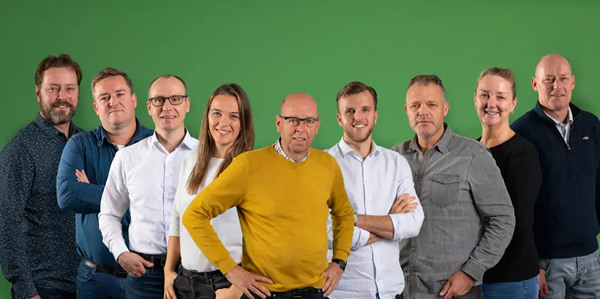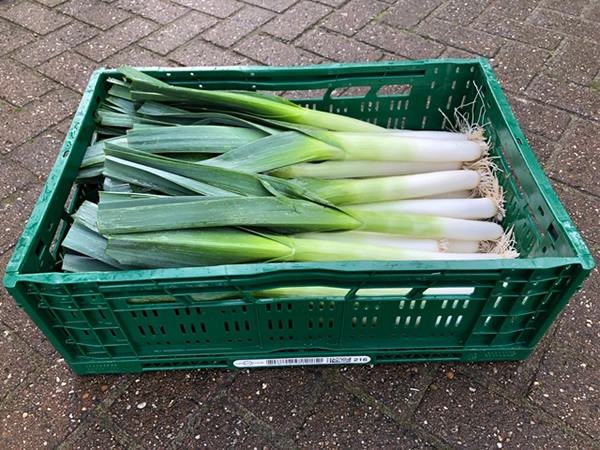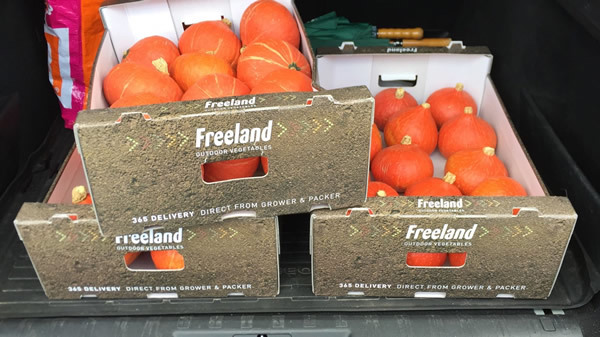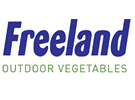Rainfall in the Netherlands earlier this summer has led to substantial shortages of iceberg, and the other open field, lettuce varieties. "Iceberg lettuce sold for €8 to €9 yesterday. Usually, if everything grows well, you get half that, at most," says Freeland's Kees van den Bosch.

Kees among his Freeland team.
"The market could stabilize this month when the Spanish supply gets going. But that's still hard to estimate. For now, though, lettuce will remain at that price. Demand is broad throughout Europe, except the United Kingdom. The English have ample product. They can't get their goods out so easily either. That's due to export barriers."

"The cauliflower, broccoli, and celeriac markets are good too. Carrots have normal prices of between €0.20 and €0.25. But it's not all good news. Leeks, for example, are worth nothing at the moment," says the open field vegetable trader. "The supply isn't even huge; there's just no demand. Chinese cabbage, too, hasn't been on the market for a while. That's due to the rain. That, however, remains a different product. There's either good or no demand. It's not widely eaten anyway."

There are items for which demand is increasingly rising - pumpkins and sweet potatoes. "Dutch pumpkins are now coming onto the market. The bad weather has made for a slightly disappointing crop. We source sweet potatoes only from other countries. There is so much supply available in countries like Egypt. It's, therefore, not profitable to work with local products. Also, cultivation in the Netherlands is small-scale, so there's a limited supply," Kees concludes.
 For more information:
For more information:
Kees van den Bosch
Freeland B.V.
126 Nijbracht
7821 CE, Emmen, NL
Tel: +31 (0) 591 670 570
Email: kees@freeland.nl
Website: www.freeland.nl
